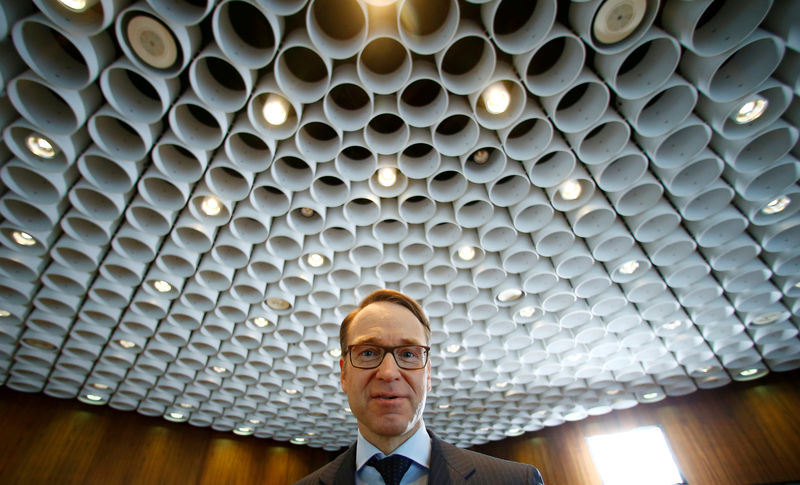 © Reuters. FILE PHOTO: German Bundesbank President Weidmann is pictured Frankfurt
© Reuters. FILE PHOTO: German Bundesbank President Weidmann is pictured FrankfurtBy Gernot Heller
BERLIN (Reuters) – The head of Germany’s Bundesbank said global financial leaders needed to reform the world trade order to better protect intellectual property and tackle subsidy-driven distortions.
Speaking before International Monetary Fund and World Bank meetings on Bali, Jens Weidmann said the reforms were vital to safeguard the World Trade Organization (WTO) and its principles of free, rules-based trade.
“These include particularly improving the protection of intellectual property and also tackling distortions created by state-owned companies and subsidies,” Weidmann, also a European Central Bank policymaker, told Reuters in an interview conducted by email.
German Finance Minister Olaf Scholz will similarly urge financial leaders to rebuild trust in international organizations such as the WTO, as well as cut debt levels, a senior government official said on condition of anonymity.
WTO member states have come under pressure to reform the body since U.S. President Donald Trump, deeply critical of the global trading system, blocked the reappointment of WTO judges and imposed huge tariffs on China and other countries.
China is widely seen as the principal target of Trump’s anger, so getting it to acquiesce to tougher WTO rules on subsidies, state-owned firms and preferential treatment could be key to achieving the “shape-up” of the WTO that Trump has demanded.
The former head of China’s central bank, Zhou Xiaochuan, last month acknowledged that China could do more to tighten up its rules on illegal subsidies and intellectual property.
Weidmann said Germany’s large trade surplus, another bone of contention for Trump, was mainly the result of market decisions, energy prices and foreign exchange rates while higher German investments would barely help to reduce the U.S. trade deficit.
“A country’s current account balance does not depend so much on trade policy, but more on how much is saved and invested domestically,” Weidmann said.
Therefore, import tariffs were not an appropriate tool to reduce the U.S. trade deficit, which was rather likely to increase as a result of Washington’s expansive, pro-cyclical fiscal policies, Weidmann said.
Other topics on the Bali agenda include the regulation of shadow banks and cybersecurity, the German official said.
Finance ministers and central bankers from the world’s 20 largest economies will gather on the sidelines of the Bali meetings but there are no plans to issue a separate G20 communique, the official added.
Fusion Media or anyone involved with Fusion Media will not accept any liability for loss or damage as a result of reliance on the information including data, quotes, charts and buy/sell signals contained within this website. Please be fully informed regarding the risks and costs associated with trading the financial markets, it is one of the riskiest investment forms possible.
Source: Investing.com





























